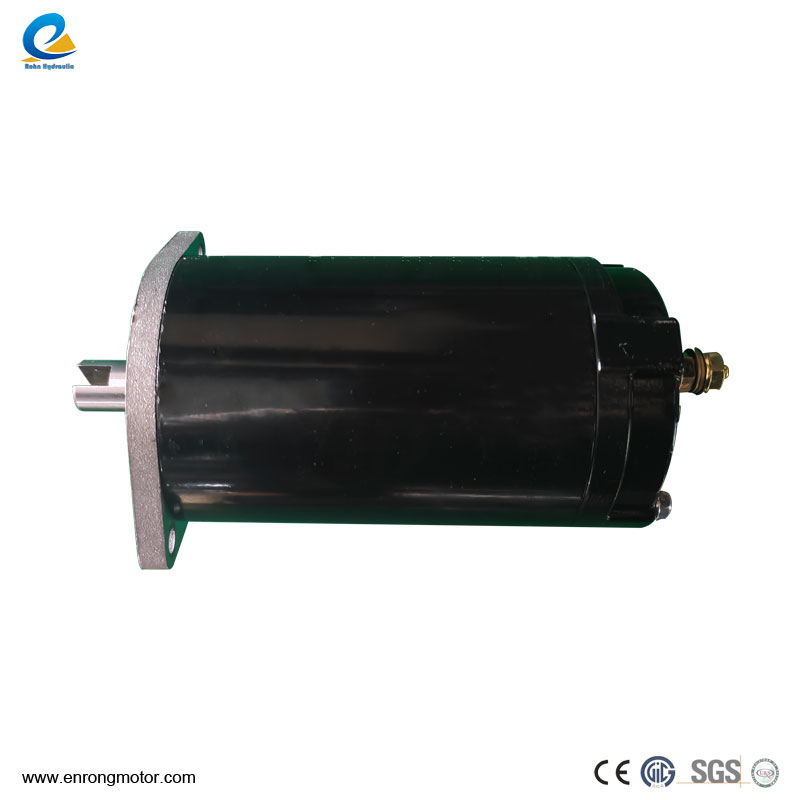Why Is a Hydraulic Motor an Indispensable Component in Modern Machinery and Industrial Applications?
2025-02-25
Hydraulic motors are a key component in many industrial applications, providing the power and precision needed to drive machines in industries ranging from construction to manufacturing. These versatile machines convert hydraulic energy into mechanical energy, offering reliable performance in various heavy-duty operations. But what exactly makes hydraulic motors so essential? How do they work, and why are they such a critical part of modern machinery?
What Is a Hydraulic Motor and How Does It Work?
A hydraulic motor is a mechanical device that uses hydraulic fluid pressure to generate rotational motion, which powers various types of machinery. The motor works by converting the pressure from the hydraulic fluid into force that turns a shaft, enabling the operation of different mechanical systems.
In simple terms, a hydraulic motor is like an engine, but instead of fuel, it uses pressurized fluid (often oil) to create movement. The fluid is pumped into the motor, where it interacts with a series of gears, pistons, or vanes that create rotational force. This force can then be used to power equipment such as conveyor belts, cranes, hydraulic presses, and more.
Why Are Hydraulic Motors Essential for Industrial Operations?
1. High Torque and Power Output
Hydraulic motors are known for their ability to generate high torque at low speeds. This makes them an excellent choice for applications requiring significant force, such as lifting heavy loads or driving large industrial machinery. The high torque capabilities of hydraulic motors allow for precise control and the ability to move or manipulate large, cumbersome equipment.
2. Versatility in Various Applications
Hydraulic motors are incredibly versatile and can be found in a wide range of industries. From construction vehicles like excavators and backhoes to factory automation systems, these motors are capable of driving everything from small, low-power applications to large, high-demand systems. They can also operate in harsh environments, making them suitable for applications in mining, agriculture, and offshore drilling.
3. Smooth and Precise Control
One of the most notable benefits of hydraulic motors is their ability to provide smooth and continuous motion. Unlike electric motors that may have speed variations, hydraulic motors allow for precise control of speed and torque, making them ideal for tasks that require exact movement or handling. Whether you need to turn a small wheel at a specific speed or operate a heavy-duty system with fine adjustments, hydraulic motors deliver reliable, precise results.
4. Compact and Efficient Design
Hydraulic motors are typically smaller and more compact than their electric or gas-powered counterparts, making them perfect for situations where space is limited. Despite their small size, they are capable of providing substantial power, allowing machines to function efficiently without taking up too much space. This compact design is one of the reasons why hydraulic motors are commonly used in applications where space-saving solutions are required.
5. Durability and Reliability
Another key advantage of hydraulic motors is their durability. These motors are designed to withstand harsh operating conditions, including high pressures, temperatures, and environmental factors such as moisture, dirt, and vibration. Because of their rugged design, hydraulic motors often have a longer lifespan compared to other types of motors, leading to lower maintenance costs and fewer breakdowns.
Where Are Hydraulic Motors Commonly Used?
1. Construction and Heavy Equipment
Hydraulic motors are widely used in construction machinery, such as bulldozers, cranes, and excavators. They help operate hydraulic arms, lift loads, and power other equipment that requires heavy torque and precise control. In construction, where machines are exposed to demanding tasks, the reliability and power of hydraulic motors are essential.
2. Agricultural Equipment
In agriculture, hydraulic motors are used to power equipment such as tractors, harvesters, and irrigation systems. These motors can drive pumps, conveyors, and various attachments, ensuring that farming operations run smoothly and efficiently. Their ability to generate high torque at low speeds is particularly useful for tasks like tilling the soil or pulling heavy loads.
3. Manufacturing and Automation
Hydraulic motors are also integral to many manufacturing and automation systems. They are commonly used in assembly lines, CNC machines, and hydraulic presses. The smooth, controlled motion of hydraulic motors allows for the precise operation of these machines, which is critical for producing quality products in a consistent and efficient manner.
4. Marine and Offshore Applications
Hydraulic motors are often found in marine applications, including boat winches, cranes, and steering systems. In the offshore industry, hydraulic motors are used to power equipment like drilling rigs and subsea machinery. These motors provide the strength and reliability required to operate heavy machinery in challenging marine environments.
5. Mining and Quarrying
In mining and quarrying, hydraulic motors power conveyor belts, crushers, and excavators. These motors are designed to handle the extreme loads and rugged environments of the mining industry, ensuring that operations run smoothly even in tough conditions.
How to Choose the Right Hydraulic Motor for Your Needs?
When selecting a hydraulic motor, several factors must be considered to ensure that it is suitable for your specific application:
- Torque and Power Requirements: Determine the amount of torque and power needed to operate your equipment effectively. Hydraulic motors come in various sizes and capacities to suit different types of machinery.
- Speed Control: Choose a hydraulic motor that offers the level of speed control required for your application. Some motors provide adjustable speeds for more precise operations.
- Environmental Conditions: Consider the operating environment in which the motor will be used. For harsh environments, look for motors with sealed components or corrosion-resistant materials to ensure longevity and reliability.
- Size and Weight: Depending on the available space and weight constraints, select a motor that fits the design and layout of your equipment.
- Maintenance and Durability: Look for hydraulic motors that are known for their durability and ease of maintenance. A motor with fewer moving parts and a robust construction will generally last longer and require less upkeep.
Conclusion
Hydraulic motors are indispensable in today’s industrial landscape, offering high power, precise control, and durability across a wide range of applications. Whether you're working in construction, agriculture, manufacturing, or any other industry that requires powerful and reliable machinery, hydraulic motors are designed to meet your needs. Their versatility, efficiency, and ability to function in demanding conditions make them an essential tool in modern industrial operations. By understanding how hydraulic motors work and selecting the right one for your application, you can ensure optimal performance and reliability in your machinery.



